‘The Hill’ Captures the Essence of Being a Grunt During Afghan War
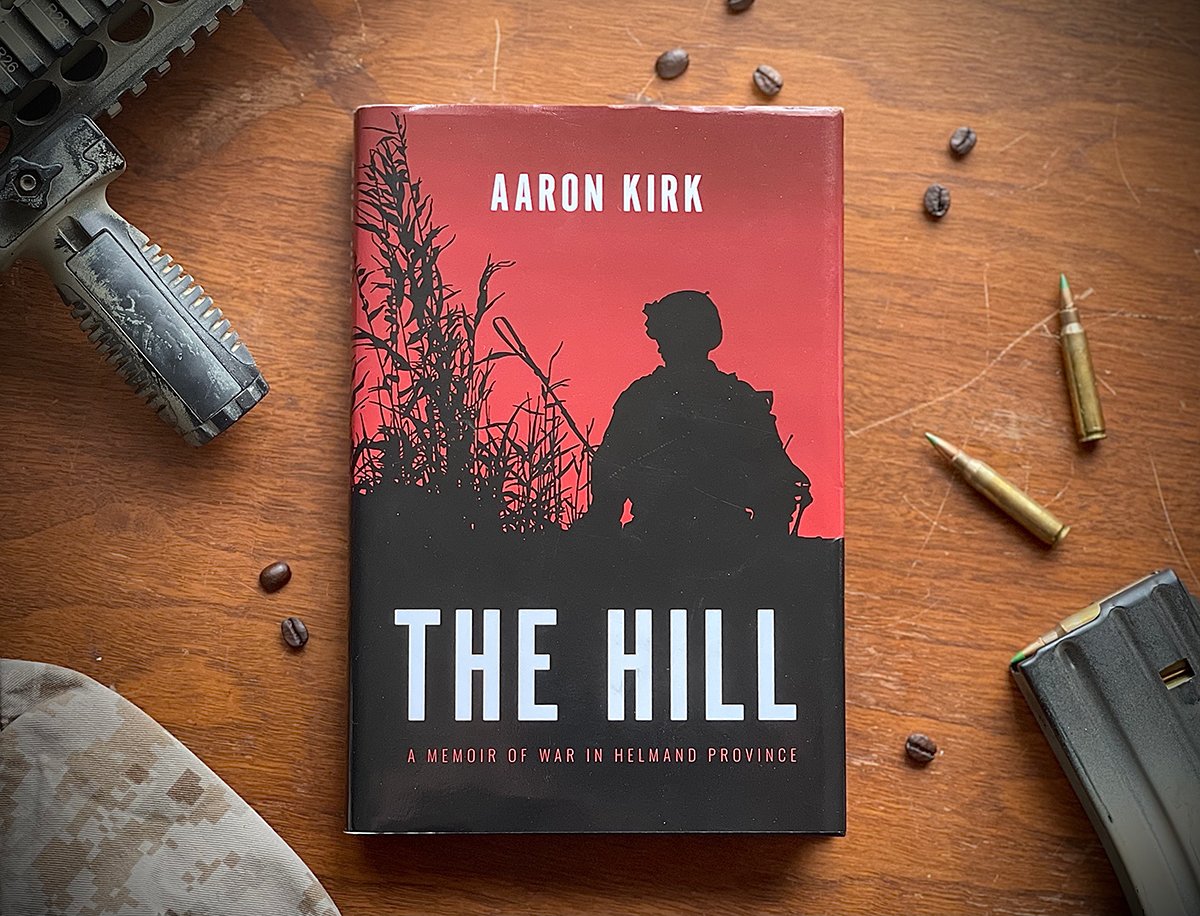
The Hill by Aaron Kirk. Photo by Mac Caltrider/Coffee or Die Magazine.
Sitting at a table full of empty chairs in a pub, Aaron Kirk and another Marine veteran set pints of beer on napkins bearing the names of fallen comrades. The empty seats and the beers are for men they fought alongside in Afghanistan.
“Nobody in the bar knows anything of this war except for what they see in movies, what they read in books with tridents on the cover. I do not relate to these books and movies. Even if they are about the Afghanistan War, they aren’t about My War. Our War. The men on the napkins’ War,” Kirk writes in his first book, The Hill: A Memoir of War in Helmand Province.
The Hill is the story of that war. The war of poppy fields, canals, and pressure plates — the grunts’ war in Afghanistan’s Helmand province.
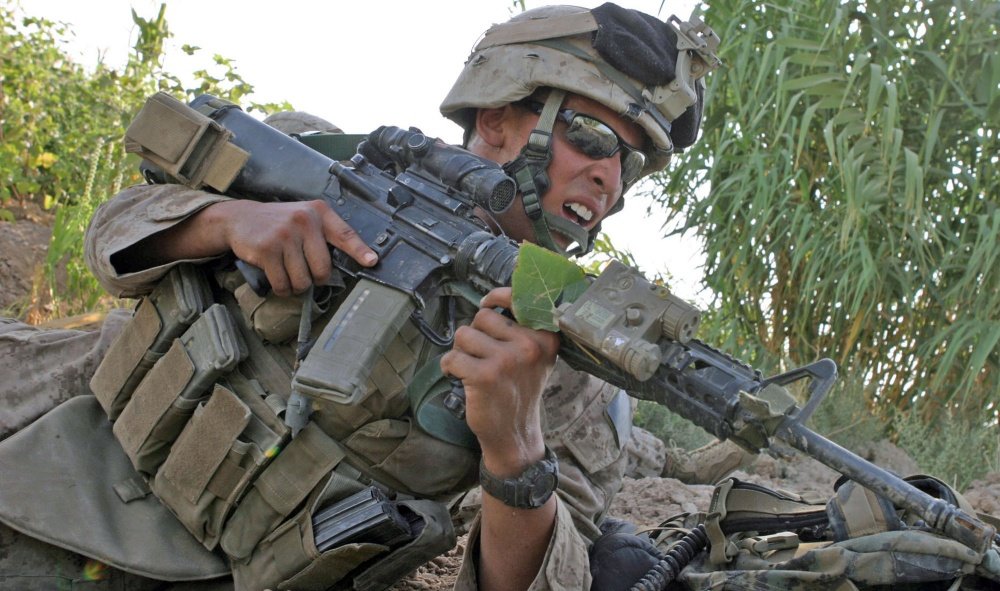
Kirk’s book portrays life as a grunt and the nature of fighting in southern Afghanistan without relying heavily on the repetitive tales of guts and glory that fill most combat memoirs.
“In the convoluted and counterintuitive Marine Corps system, the infantry is a beaten dog chained out in the yard,” he writes. “You don’t let him in from the cold, or else he’ll get used to it and lose his edge. The entire Corps is built around the infantry, and it needs its grunts interchangeable and angry.”
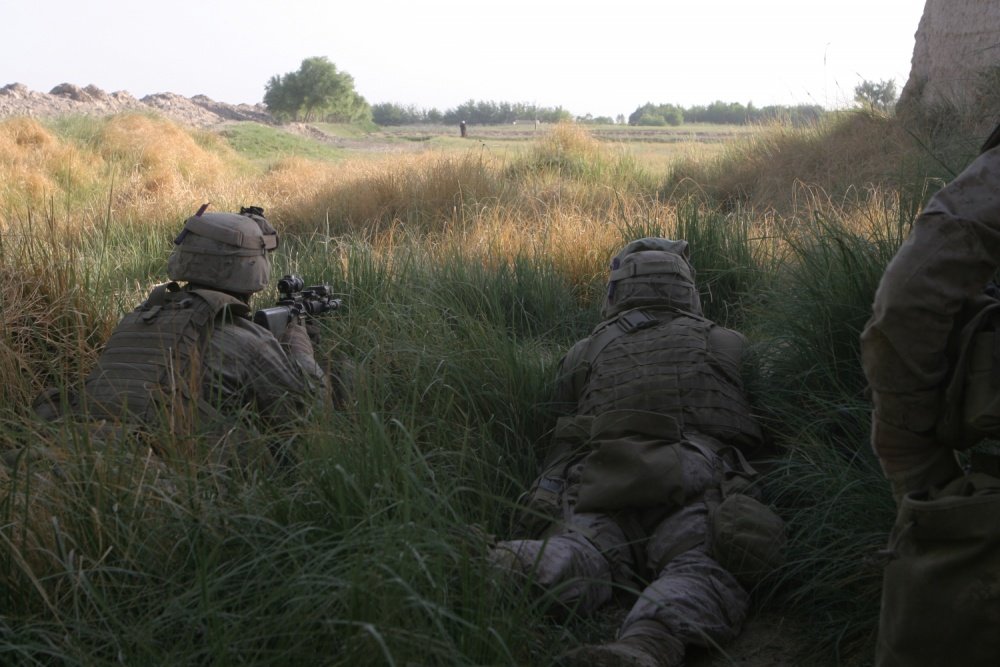
Kirk served in the Marine Corps as a Marine assaultman from 2008 to 2012. He deployed twice to Helmand province, where almost 1,000 coalition troops were killed in action. The vast majority of those deaths were US Marines killed during the years Kirk was deployed.
The Hill reveals what it was like to fight in a never-ending sprawl of farmland that stood in stark contrast to the urban streets of Iraq and the mountains of northern Afghanistan. Marines found themselves carrying loads of up to 150 pounds, tiptoeing through minefields, wishing for gunfights they’d come to regret.
“Everyone wants a bad deployment. Until you get a bad deployment,” Kirk writes. “Then you just want to go home.”
Helmand was so saturated with improvised explosive devices that the Marines often had to fight in single-file lines, where one misstep often resulted in lost limbs or worse.
“Walk in each other’s footsteps,” a Marine leaving Afghanistan tells Kirk on his way in. “Always have multiple pointmen carrying metal detectors, because they are the ones who get blown up the most.”
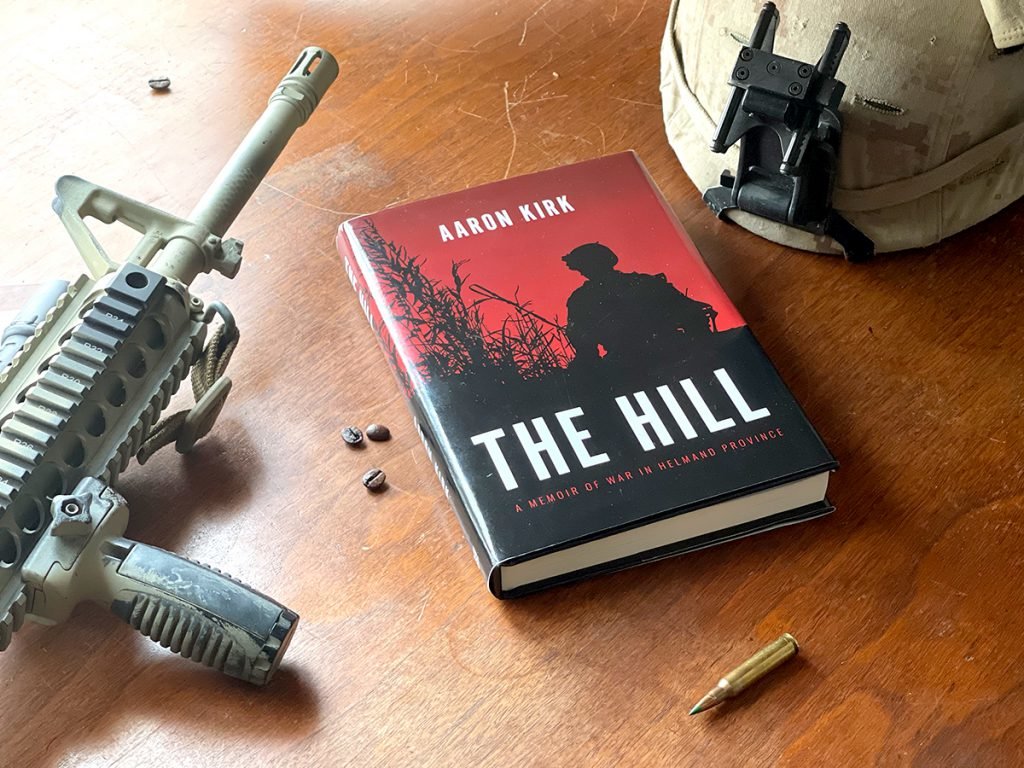
Between tense glimpses of combat, The Hill preserves many details Afghanistan vets will recognize and relate to. Kirk writes with a pervading dark humor about how Marines befriended their Afghan army counterparts the same fearful way one might befriend the weird kid in school — with the hope of being spared on the day he starts shooting up his classmates. He talks about how burning batteries, plastic, human shit, and diesel next to where service members ate and slept was the norm in Afghanistan.
He also recounts another experience familiar to vets who were brave enough to try the local cuisine there.
“I let out gas only to realize too late that it’s not gas at all, but hot liquid diarrhea,” he writes, explaining how dodging dysentery proved as difficult as dodging IEDs.
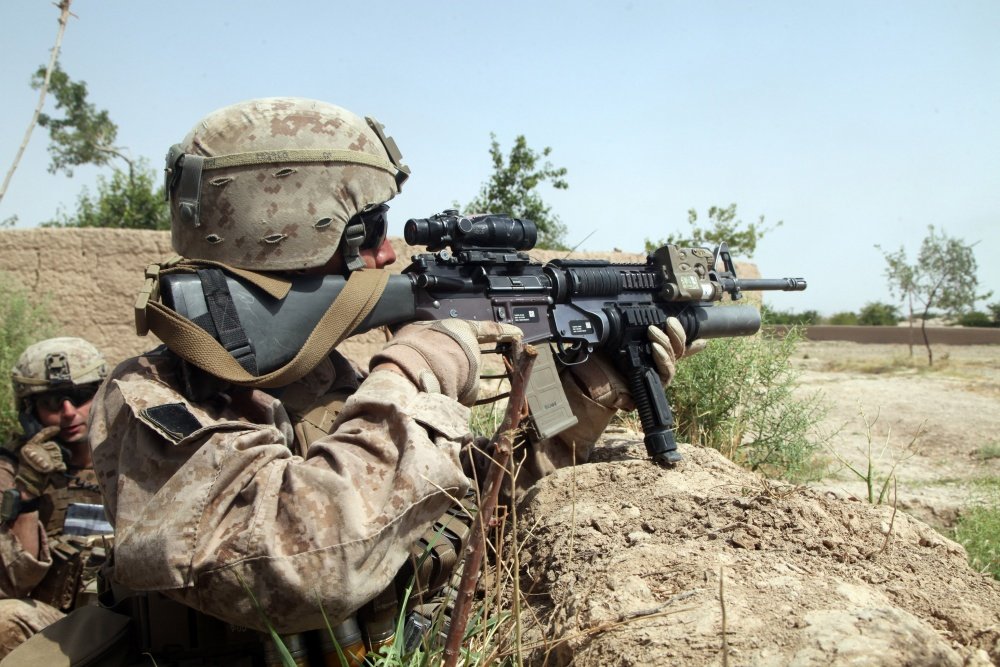
Beyond the details of Afghanistan, The Hill explores what it means to be an enlisted Marine, and the passionate love-hate relationship most leathernecks have with the branch known equally for winning battles and having stupid haircuts. Kirk identifies the culprit behind this paradoxical relationship as “The Way.”
The Way is all of the unwritten rules and traditions Marines embrace — the good, the bad, and the ugly. Kirk recounts how a boot gets a medium-regulation haircut instead of a high-and-tight, so he’s forced to shave his head with a Bic razor in accordance with The Way. A Marine is too tired to stay awake on post, so he’s punished with standing more post. Sleeping bags are only authorized in very neat and tidy lines; puddles, rocks, and common sense be damned.
When Kirk’s company is standing around in the cold rain, he asks why no one is allowed to don the Gore-Tex rain jackets they’ve all packed. The answer: The Way.
The Marine Corps Way is “the unwritten doctrine of Doing Things the Way They Have Always Been Done.” It’s something every Marine experiences on some level, and Kirk has aptly named it.
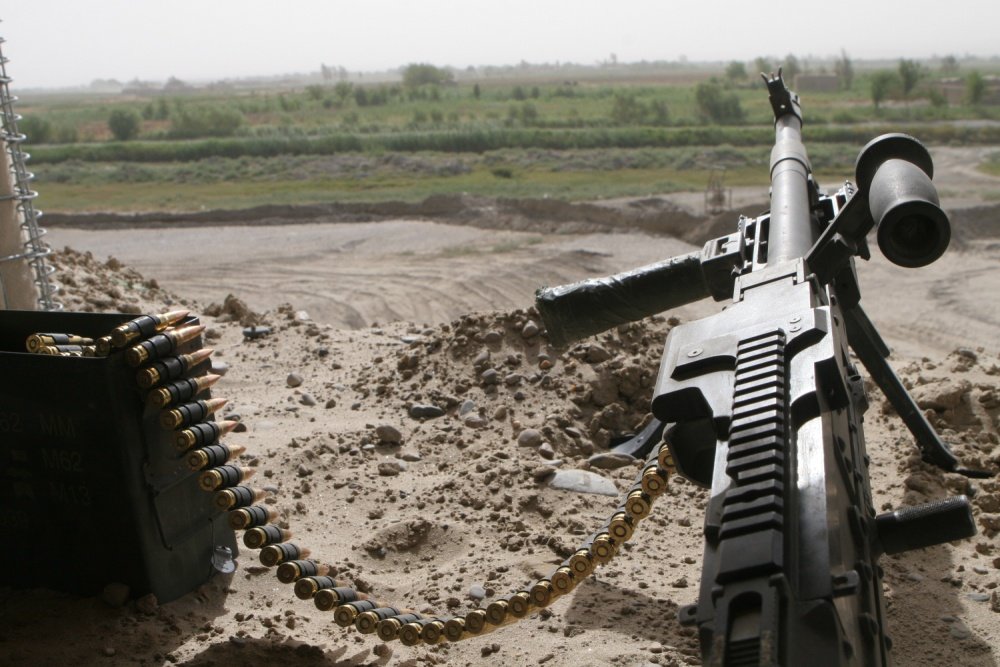
“The Marine Corps Way guides you, hinders you, changes you during your time in the Corps,” he writes. “The Marine Corps Way exists both inside and outside the official narrative. It is a subplot, an essential undercurrent to the experience of being a Marine. It seems to be felt most keenly in the units that see close combat, though all Marines find themselves touched by it sooner or later.”
Instances of Kirk and his squad being left in the cold to keep their edge fill the book without becoming its focus. He never relies on violence or tragedy to keep the story compelling. Instead, he leans into the absurdity of it all and crafts an honest and critical story of America’s longest war. With single sentences ranging from one word to entire pages, Kirk uses his disdain for convention to capture the Marines’ martial culture in all its greatness and stupidity. Even when left alone on a remote hill at the edge of the empire, that culture trickles down into everything they do.
The Hill deserves a place on every Marine’s shelf, neatly aligned between Jarhead and No Joy.
The Hill: A Memoir of War in Helmand Province by Aaron Kirk, Second Mission Press, 326 pages, $25
Read Next: UN: Civilian Casualties Hit Record High Amid US Withdrawal From Afghanistan
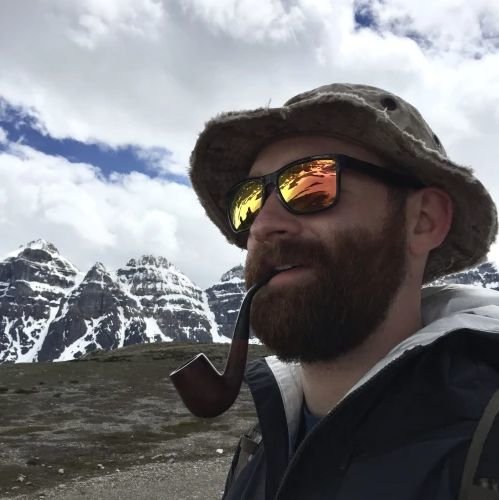
Mac Caltrider is a senior staff writer for Coffee or Die Magazine. He served in the US Marine Corps and is a former police officer. Caltrider earned his bachelor’s degree in history and now reads anything he can get his hands on. He is also the creator of Pipes & Pages, a site intended to increase readership among enlisted troops. Caltrider spends most of his time reading, writing, and waging a one-man war against premature hair loss.
BRCC and Bad Moon Print Press team up for an exclusive, limited-edition T-shirt design!
BRCC partners with Team Room Design for an exclusive T-shirt release!
Thirty Seconds Out has partnered with BRCC for an exclusive shirt design invoking the God of Winter.
Lucas O'Hara of Grizzly Forge has teamed up with BRCC for a badass, exclusive Shirt Club T-shirt design featuring his most popular knife and tiomahawk.
Coffee or Die sits down with one of the graphic designers behind Black Rifle Coffee's signature look and vibe.
Biden will award the Medal of Honor to a Vietnam War Army helicopter pilot who risked his life to save a reconnaissance team from almost certain death.
Ever wonder how much Jack Mandaville would f*ck sh*t up if he went back in time? The American Revolution didn't even see him coming.
A nearly 200-year-old West Point time capsule that at first appeared to yield little more than dust contains hidden treasure, the US Military Academy said.












